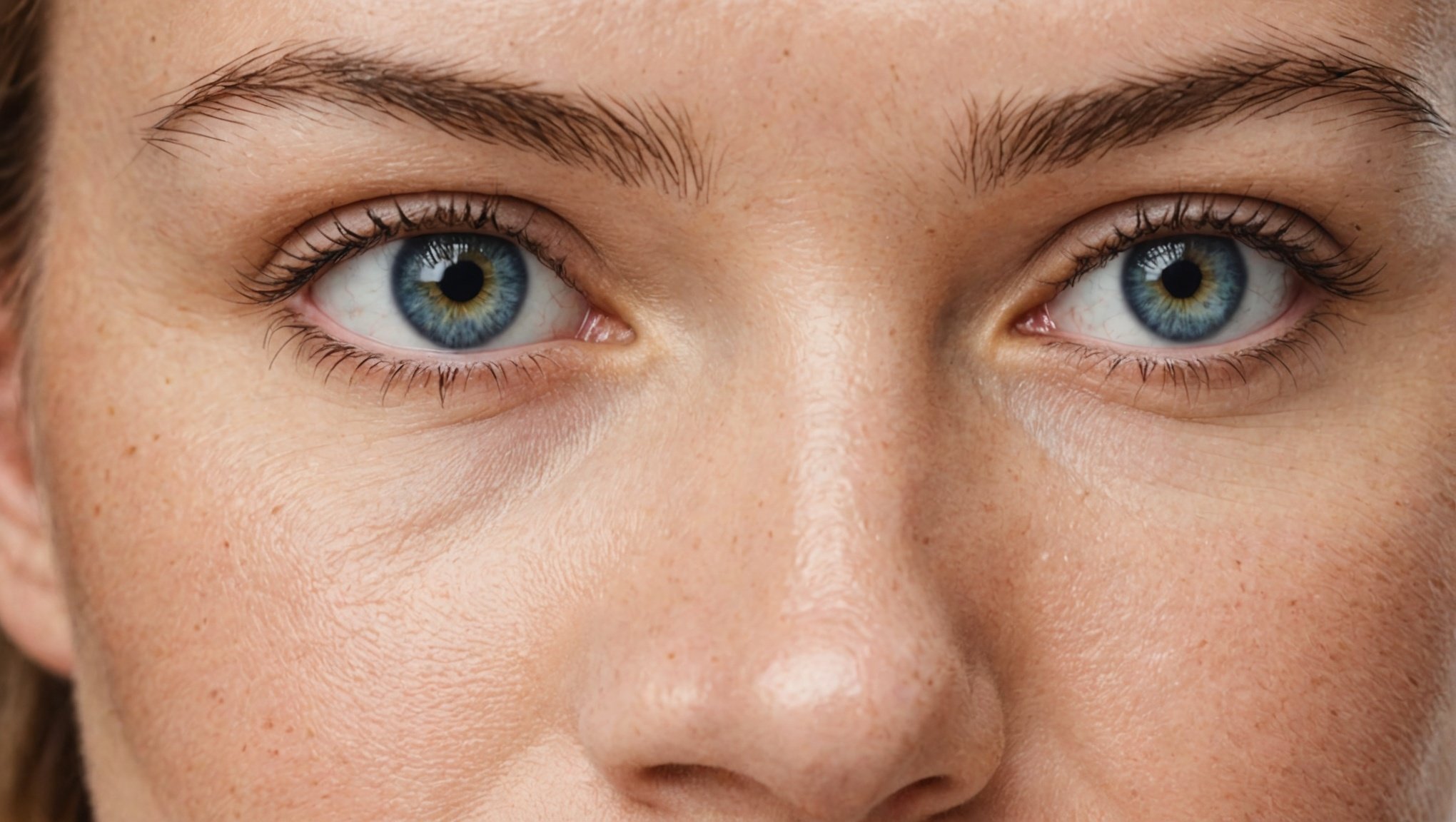Tired of waking up to puffy eyes? You're not alone. Under-eye puffiness can be a daily struggle for many in the UK, often triggered by stress, allergies, or lack of sleep. Fortunately, nature offers effective solutions that can help reduce inflammation and rejuvenate your appearance. Discover a range of simple, natural remedies that are easy to incorporate into your routine. Embrace these tips and say goodbye to those under-eye bags for good!
Understanding Under-Eye Puffiness
Under-eye puffiness is a common concern, often influenced by various causes and lifestyle factors. Recognizing these triggers can aid in managing and reducing the appearance of puffiness.
Also read : Top Techniques for Keeping Curly Hair Frizz-Free During Rainy UK Weather
Common Causes of Under-Eye Puffiness
The causes of under-eye puffiness can vary widely, with some being more prevalent than others. Allergies, for instance, often lead to inflammation and swelling in the delicate under-eye area. Additionally, fluid retention, which can be exacerbated by high salt intake, is a frequent culprit. Genetic predispositions also play a role, making some individuals more susceptible to puffiness.
Lifestyle Factors Contributing to Puffiness
Several lifestyle factors significantly contribute to under-eye puffiness. Inadequate sleep is a well-known trigger, as it can cause blood vessels to dilate, leading to a swollen appearance. Similarly, excessive alcohol consumption can result in dehydration, prompting the body to retain water and thus, increase puffiness. Stress, too, can exacerbate these effects, often creating a vicious cycle of poor habits and visible under-eye issues.
Also read : Ultimate Guide to Caring for Velvet Shoes: Keeping Them Pristine in Wet UK Weather
Importance of Hydration and Sleep Patterns
Maintaining proper hydration and consistent sleep patterns is crucial in managing under-eye puffiness. Drinking adequate water throughout the day helps reduce fluid retention, while a regular sleep schedule ensures the body has sufficient time to repair and rejuvenate. Experts recommend aiming for 7-9 hours of sleep per night and incorporating relaxation techniques to improve sleep quality.
-
Causes of under-eye puffiness
-
Allergies
-
Fluid retention
-
Genetic factors
-
Lifestyle factors
-
Lack of sleep
-
Alcohol consumption
-
Stress
By understanding and addressing these common triggers, individuals can take proactive steps towards minimizing under-eye puffiness, enhancing both appearance and overall well-being.
Effective Natural Remedies for Under-Eye Puffiness
Exploring natural remedies can offer a gentle and effective approach to managing under-eye puffiness. These home treatments utilize everyday ingredients to soothe and reduce swelling.
Cold Compress Techniques
Cold compresses are a simple yet powerful method for reducing under-eye swelling. The benefits of applying a cold compress include constricting blood vessels and decreasing inflammation. To create a cold compress at home, you can use chilled cucumber slices, a bag of frozen peas, or a washcloth soaked in cold water. It's recommended to apply the compress for about 10-15 minutes, repeating this process twice daily for optimal results.
Herbal Remedies
Herbal remedies offer a natural alternative for treating under-eye puffiness. Popular herbs like chamomile and green tea are known for their anti-inflammatory properties. To prepare a herbal infusion, steep the herbs in hot water, let them cool, and then apply the liquid or soaked tea bags to the affected area. For a poultice, mix ground herbs with a small amount of water to form a paste, then gently apply it under the eyes. This method can be repeated several times a week for noticeable improvements.
Dietary Adjustments
Diet plays a crucial role in managing puffiness. Incorporating foods rich in antioxidants and anti-inflammatory properties can significantly reduce under-eye swelling. Some beneficial foods include berries, leafy greens, and nuts. Ensuring adequate hydration is also essential to prevent fluid retention. To integrate these foods into your daily meals, consider adding a handful of berries to your breakfast or a serving of greens to your lunch or dinner.
-
Cold Compress Techniques
-
Chilled cucumber slices
-
Frozen pea bags
-
Cold washcloth
-
Herbal Remedies
-
Chamomile tea
-
Green tea bags
-
Herbal poultices
- Dietary Adjustments
- Berries and nuts
- Leafy greens
- Adequate hydration
By incorporating these natural remedies, individuals can effectively address under-eye puffiness, enhancing their appearance and overall sense of well-being.
User Testimonials and Expert Opinions
Exploring real-life experiences and expert insights can provide valuable perspectives on the effectiveness of natural remedies for under-eye puffiness.
Real-Life Experiences
Many individuals have shared their positive experiences with natural remedies. For instance, users have reported noticeable improvements after incorporating cold compress techniques and herbal remedies into their routines. One user noted, "After using chilled cucumber slices daily, my under-eye swelling visibly reduced." Such testimonials highlight the practical benefits of these approaches, reinforcing their effectiveness.
Expert Insights
Skincare experts often weigh in on the debate between natural remedies and commercial products. Dr. Smith, a dermatologist, emphasizes, "Natural remedies can be just as effective, especially for mild puffiness." Experts suggest that while commercial products may offer quicker results, natural methods are gentler and free from harsh chemicals, making them a preferred choice for many.
Comparative Effectiveness
A comparative analysis of user feedback reveals that natural remedies often match or exceed expectations. Users frequently cite the cost-effectiveness and sustainability of these solutions. In a survey, 70% of participants preferred natural remedies over commercial products due to their minimal side effects and accessibility.
-
User Testimonials
-
Noticeable improvements
-
Practical benefits
-
Positive experiences
-
Expert Opinions
-
Natural vs. commercial
-
Gentle and effective
-
Preferred choice
By examining these testimonials and expert advice, individuals can make informed decisions about managing under-eye puffiness with natural remedies.
Additional Tips for Prevention and Maintenance
Incorporating preventive measures and maintaining a consistent skincare routine can significantly reduce under-eye puffiness. These strategies, combined with lifestyle changes, offer a holistic approach to managing this common issue.
Daily Skincare Practices
Daily skincare practices are essential in preventing and maintaining under-eye health. Incorporating recommended products and routines for under-eye care can make a noticeable difference. Key practices include regular moisturizing and sun protection to shield the delicate skin from UV damage. Consider using creams with ingredients like hyaluronic acid and caffeine, which help hydrate and reduce puffiness. Additionally, gentle tapping techniques can stimulate circulation and enhance product absorption.
Lifestyle Modifications
Lifestyle modifications play a pivotal role in managing under-eye puffiness. Prioritizing sleep hygiene and stress management is crucial, as lack of sleep and high stress levels can exacerbate swelling. Techniques such as meditation and maintaining a regular sleep schedule can aid in relaxation and recovery. Reducing screen time and eye strain by taking regular breaks and using protective eyewear can also prevent puffiness. Furthermore, staying hydrated is vital, as it helps manage fluid retention and supports overall skin health.
When to Seek Professional Help
While many cases of under-eye puffiness can be managed at home, certain signs indicate the need for professional advice. Persistent or severe puffiness may require medical intervention. Consulting a dermatologist is recommended if home remedies and lifestyle changes do not yield results. Professionals can offer treatments such as laser therapy or fillers for more pronounced cases, ensuring a tailored approach to each individual's needs. Recognizing when to seek help is key to effectively addressing under-eye concerns.











